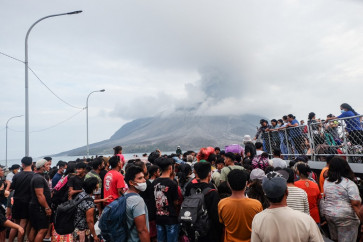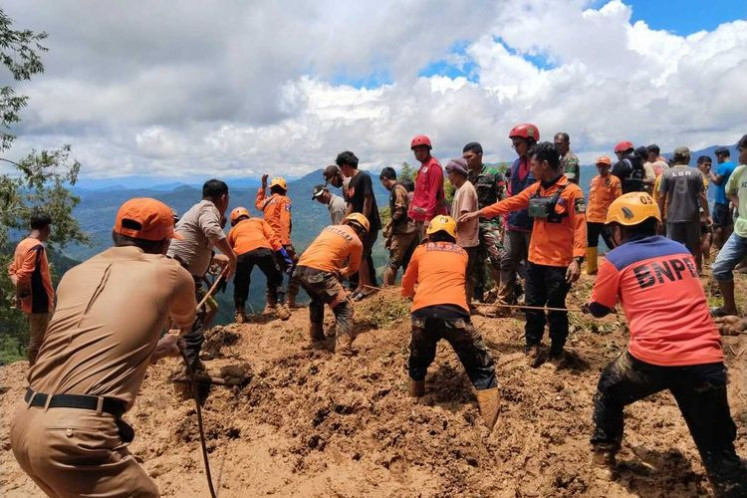Massive land conversion threatens small islands near Bali
As growing tourist areas, Nusa Lembongan and Nusa Ceningan islands in Klungkung regency, are facing massive conversions of farmland, raising concerns among villagers of whether the isles to the southeast of the main island of Bali are ecologically capable of coping with possible threats
Change Size

A
s growing tourist areas, Nusa Lembongan and Nusa Ceningan islands in Klungkung regency, are facing massive conversions of farmland, raising concerns among villagers of whether the isles to the southeast of the main island of Bali are ecologically capable of coping with possible threats.
Residents in Lembongan village of Nusa Penida subdistrict, which comprises Nusa Penida, Nusa Lembongan and Nusa Ceningan islets, said the island’s environmental condition had worsened, as evident in the degrading land fertility due to erosion and unsuitable land management.
“Agricultural land being converted into villas and hotels is expanding,” said I Made Sumiarta, a caretaker in the village.
The coastal areas are also seeing more abrasion and a decreasing quality of the seaweed ecosystem.
“The coastal zone is shrinking every high tide. This is a major threat we should be aware of,” Sumiarta said to Klungkung regency officials at a seminar on the management of coastal areas and small islands on Friday.
Encroaching seawater has affected the quality of ground water, forcing locals to buy packaged mineral water from the main island of Bali for drinking.
The locals have also noticed decreasing biodiversity. A plant they called glundung is now extinct, and the population of swallows is dwindling, compared to 10 years ago, they said.
Many people from outside the islands come to rent or buy land, houses and villas, but the village does not have a regulation for investors and outside people living and working in the village, Sumiarta said.
“The customary village should set up a regulation to prevent the massive conversion of farmland into villas and hotels to prevent more damage to the environment,” said chairman of Wisnu Foundation, I Made Suarnatha
Secretary of the Grand Council of Customary Villages, I Ketut Sumarta, said Bali needs an integrated development plan, which combines the management of land and coastal areas.
“These islets ecologically and spiritually support Bali as a whole. The provincial administration should pay more attention to preserving these areas,” he said.
The seminar, organized by Wisnu Foundation and TIFA, also discussed the contribution of local people in drafting the regency’s spatial master plan.
AA Gede Oka Putra, an official at Klungkung’s development agency, said the agency would welcome and appreciate the villagers’ suggestions for the master plan.
I Wayan Sugati, head of Commission B at the regency’s council, said the council would support villages that outline the details of the spatial master plan. He also emphasized that people in coastal areas and small islands have to prioritize marine conservation in their plan.
Some articles in the awig-awig (customary law) stipulate environmental management, including quarrying sand and coral reefs, bird hunting and mangrove cutting. It also outlines the punishment.
Villagers of Nusa Ceningan Island have formed their own team of spatial planners. The team suggests that the regency administration establish a conservation zone and replant the coastline with selected plant species to prevent abrasion.
They also propose the establishment of a tourism center at the east and west coasts of Nusa Ceningan, where tourists can snorkel, surf, bird watch and enjoy sunsets and sunrises.









